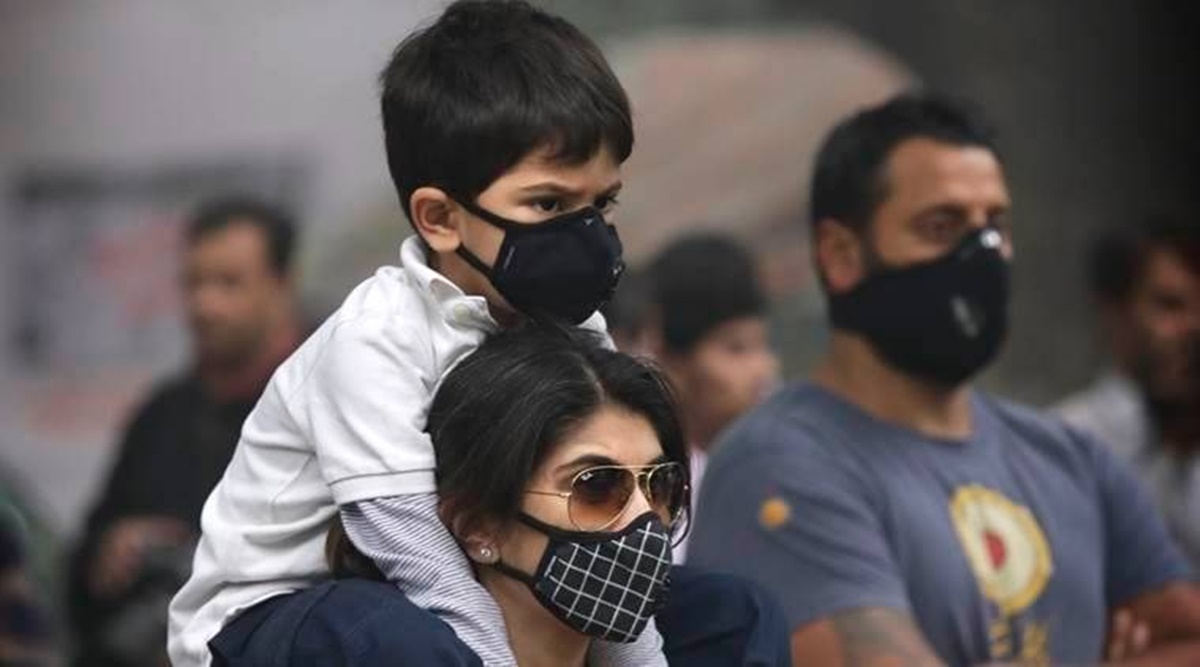Air pollution is one of the leading threats to children’s health, accounting for almost 1 in 10 deaths

By Rushda Majeed
Rapid industrialisation and urbanisation are depleting the green cover and giving rise to environmental issues that can cripple economies and their populations. According to the NOAA report released in April 2021, the rate of atmospheric carbon dioxide (CO2) was 412.5 parts per million (ppm) in 2020, rising by 2.6 ppm during the year. Severe drought, landslides, flooding, water scarcity and air pollution are just some of the outcomes that have caught the headlines. People of all age groups have suffered – particularly infants and toddlers as they are in their critical formative years and depend on caregivers to protect them.
Air pollution is one of the leading threats to children’s health, accounting for almost 1 in 10 deaths in those under five years of age, according to the recent State of Global Air report, which also indicated that mortality is increasing year on year. More than 950,000 premature deaths in India were reported due to the presence of particulate matter in the air. In fact, many reports have demonstrated the negative impacts of air pollution on children under age 5.
Children in the womb are greatly at risk as during pregnancy – exposure to pollutants such as PM2.5 (a range of fine particles, including black carbon) is almost as bad for the foetus as smoking. This increases the likelihood of premature birth, low birth rate, miscarriage and cognitive impairment. Even after birth, infants are not safe as prolonged exposure to polluted air can lead to a reduction in lung function and asthma.
It’s not just the urban context but also the physiological one that must be considered: three-year-olds breathe in twice as much air as adults per unit of body weight and play closer to the ground, where particulate matter is often more concentrated.
Also, in cities, transportation can affect the quality of the experiences that shape developing brains. According to the Clean Air fund Report, outdoor air pollution results in 4.2 million deaths each year, including almost 300,000 children under the age of five. This analysis highlights how air pollution can raise the risk to children’s immune systems – the death toll is greater than that of tuberculosis, HIV/AIDS and malaria combined! Despite the enormous impact of air pollution, a recent funding analysis indicates that less than 1% of total global funding goes towards improving air quality. It is clear that the action to solve air quality does not match the gravity of the problem.
Therefore, it is important to increase funding, and improve quality of transportation and urban planning as it affects the extent to which pregnant women, babies and toddlers can access services like clinics, primary healthcare, parks and pre-schools.
The government and policymakers must make investments in renewable energy, improve waste management and clean technologies to protect people against air pollution. Besides this, it is necessary to take up initiatives like planting trees, creating green spaces such as parks and playgrounds, developing infrastructure that is accessible to all where activities like walking and cycling are easy, and designing low-emission zones that will benefit the urban population, especially babies, toddlers and their caregivers. These steps will improve the quality of life, address public health and inequality issues not only for infants and toddlers but even for the elderly. Improving air quality improves children’s health and creates a healthier community, and helps build a healthy economy for babies and toddlers to grow up in.
In order to mitigate the effects of air pollution and climate change on children and caregivers, cities must measure air quality regularly and plan neighbourhoods where air quality indices are within safety limits so that they can promote clean and healthy living for all.
The writer is the India Representative, Bernard van Leer Foundation And Reecha Upadhyay, Head of India Programme, Clean Air Fund.
For all the latest Parenting News, download Indian Express App.
Source: Read Full Article
